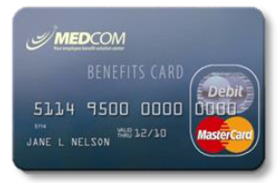Flexible Spending Account
A Healthcare Flexible Spending Account (FSA) allows you to use pre-tax dollars to pay for eligible healthcare expenses, saving you money. Your contributions go into your FSA account before federal income or Social Security taxes are withheld. You pay less in taxes, leaving you more disposable income. The IRS manages the guidelines for the FSA plan, so special rules apply.
The Healthcare FSA is available for all benefits-eligible team members, including those not enrolled in the Jim Ellis medical plan. You can use the FSA for your expenses and the expenses of your taxable dependents.
About Reimbursable Expenses
Qualified FSA expenses include a variety of healthcare products and services for you, your spouse, and your taxable dependents. Your FSA may cover medical expenses like copays, deductibles, and coinsurance. Out-of-pocket dental and vision expenses are also eligible for reimbursement. A flyer containing information about eligible expenses is located on the Resources page. www.fsastore.com is also a great resource for eligible Healthcare FSA expenses.
How it Works
The Healthcare FSA allows you to direct a portion of your pay, up to $3,200 on a pre-tax basis, into a special account to reimburse yourself for qualifying out-of-pocket expenses. Equal amounts are taken out of each of your paychecks, and your annual FSA contribution is not subject to federal income tax. As you incur eligible expenses during the year, you simply use your debit card or submit the expenses to the administrator for reimbursement. Plan participants pay a $3.50 monthly post-tax administrative fee via payroll deduction.
FSA Debit Card
All FSA plan participants receive a MasterCard debit card which can be used at the time of purchase. The debit card provides a convenient way to pay for eligible expenses, eliminating the need to pay out-of-pocket, file claims, and be reimbursed. Certain vendors may not accept the FSA debit card. In these cases, payment and claim filing for reimbursement is required. All FSA participants are highly encouraged to set-up direct deposit, so that your manual claims may be reimbursed promptly and efficiently. Please refer to the Resources page for the Direct Deposit Authorization Form.
Plan Administration & Receipt Requirements
The Healthcare FSA plan is administered by Medcom. Per IRS regulations, Medcom requires appropriate documentation for all FSA claims, and Medcom may request receipts for debit card transactions. It is very important that all FSA plan participants retain your receipts, per IRS guidelines.
All Healthcare FSA participants have access to your account through the Medcom portal and member app. All participants are encouraged to login to your account and review your balance regularly. If receipts are required, you will be notified on the dashboard of your online portal. The portal and member app are the most efficient way to review your balance, submit documentation, and obtain assistance from Customer Service. Please reference the Resources page for a flyer that explains the online portal.
Use It or Lose It
The FSA plan is governed by the IRS, and special rules apply in exchange for the tax savings. Claims must be incurred by December 31, 2024 to be eligible for reimbursement for the 2024 plan year. The IRS requires that any unused money in your account at the end of the plan year be retained by your employer and forfeited by the team member. However, the IRS allows Healthcare FSA plan members to roll over up to $640 of unused funds for future use.
Questions? Call Medcom Benefit Solutions at (800) 523-7542 or the Benefits Service Center at (770) 295-1100.
Sample Debit Card

